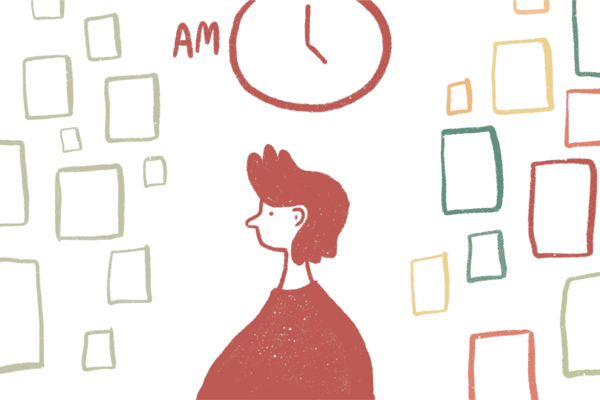How much variety we want varies by the time of day, according to new research from Duke University’s Fuqua School of Business.
Professor Jordan Etkin and her colleagues found the circadian rhythms that guide the body’s daily cycle cause us to desire less variety in the morning – in the food we eat, the activities we like and even the colors we choose – but more as the day wears on.
“Most of us are perfectly fine with eating the same thing for breakfast every day, like cereal, but the thought of eating the same rotisserie chicken for dinner every day is just terrible,” said Kelley Gullo, a Fuqua Ph.D. student and the study’s lead author. “We wanted to test this apparent difference, and to understand why it exists.”
Does Time of Day Affect Variety Seeking? is forthcoming in the Journal of Consumer Research. Etkin and Gullo worked with Bryan Bollinger, also of Fuqua, and Jonah Berger of the Wharton School.
The findings shed light on how consumers shop, and can help firms tailor offerings to suit them based on the time of day.
The researchers conducted four studies. They reviewed data from 1.1 million reward card customers at a grocery store in California over two years. Tracking the card usage allowed the researchers to see how the same customers shopped differently at different times of day.
They found people chose significantly more variety within single categories – more different flavors of yoghurt, for example – when they shopped later in the day.
The other studies moved beyond food, realizing there could be other reasons people might want a simple breakfast.
“There are certain norms that hold breakfast as more of a functional meal and less fun,” Etkin said. “You might be more motivated just to get out of the door, rather than savoring your breakfast. Of course those norms could have developed in part due to an underlying preference for less variety in the morning. But we needed to know if a desire for less variety, less stimulation in the morning went beyond food preferences and into other domains, such as shopping, or reading, or choosing activities.”
In a second study, online survey participants chose types of activities to engage in. The researchers tracked what time zone the participants were in and when they took the survey.
“The patterns were very consistent,” Gullo said. “In the morning people tend to choose more of the same activities, rather than several different activities.”
To understand the cause of these variety preferences, the researchers recruited students who were randomly assigned to show up at 7:30 a.m., noon, or 5:30 p.m., and asked to choose multiple highlighters for an exercise. People in the morning chose primarily the same color of highlighters, and people in the evening chose different colors.
“It was important that we not allow people to choose their own times, which would have allowed their own circadian rhythms to determine when they came in to the lab,” Etkin said.
The researchers also measured the students’ body temperature, and found it tended to be higher later in the day. Higher body temperature is a signal of physiological arousal.
“We found arousal level is driving this variety preference effect,” Gullo said. “The more physiologically aroused you are, the more variety you want.”
A final online study used a questionnaire to identify whether participants were morning people or night owls. “What we found is this effect only holds if you are not an extreme morning person,” Gullo said. “Morning people, because they are more physiologically aroused in the morning, like a similar amount of variety in the morning as they do for the rest of the day.”
Business can learn from this research, but more from adjusting to customer preferences than affecting their levels of stimulation.
“If you have more caffeine, that might affect your desire for variety – but it would have to be an internal boost to your physiological arousal,” Gullo said. “External stimuli, like loud music, wouldn’t work. We’ve all experienced turning on the car stereo in the morning and the volume is as high as it was the previous night, and it’s just too much.”
Instead, Etkin said retailers – online in particular – can tailor offerings to the time of day customers are browsing.
“If I’m shopping for children’s books in the morning, it may be better to serve me books by the same author, or books on similar themes – anything that can reduce that perception of variety that might make me happier buying more,” she said. “If you show me a lot of different things in the morning, I might just buy one and leave the site because it’s too much.”
There are also lessons consumers can take, especially when shopping for food to be consumed later.
“If you are shopping in the morning for food to be eaten in the evening, it’s good to remember that while you might not like the idea of a lot of different things for dinner when you’re shopping in the morning, your future self will appreciate some variety,” Gullo said. “Conversely, if you are shopping for breakfast in the evening, buying all the different flavors of yoghurt might seem fun and exciting, but your morning self might rather you to stick to your preferred flavor.”
